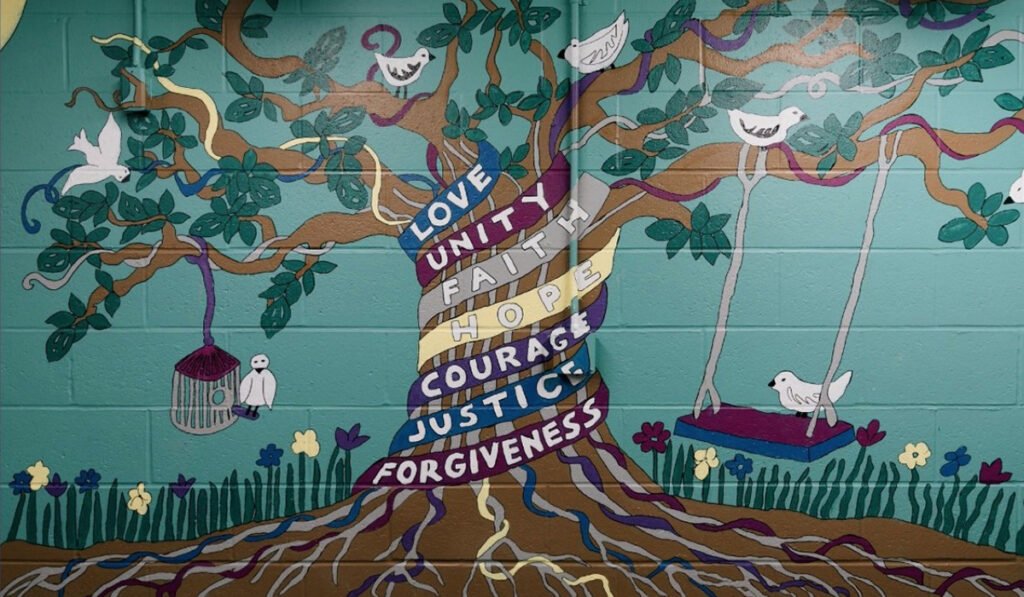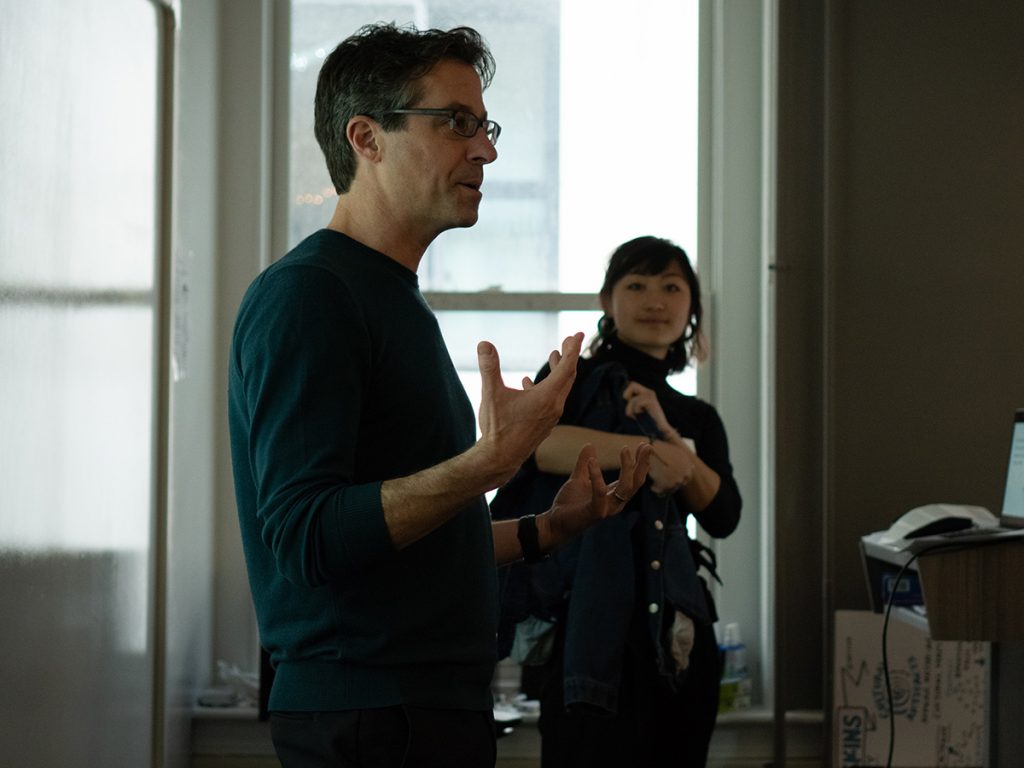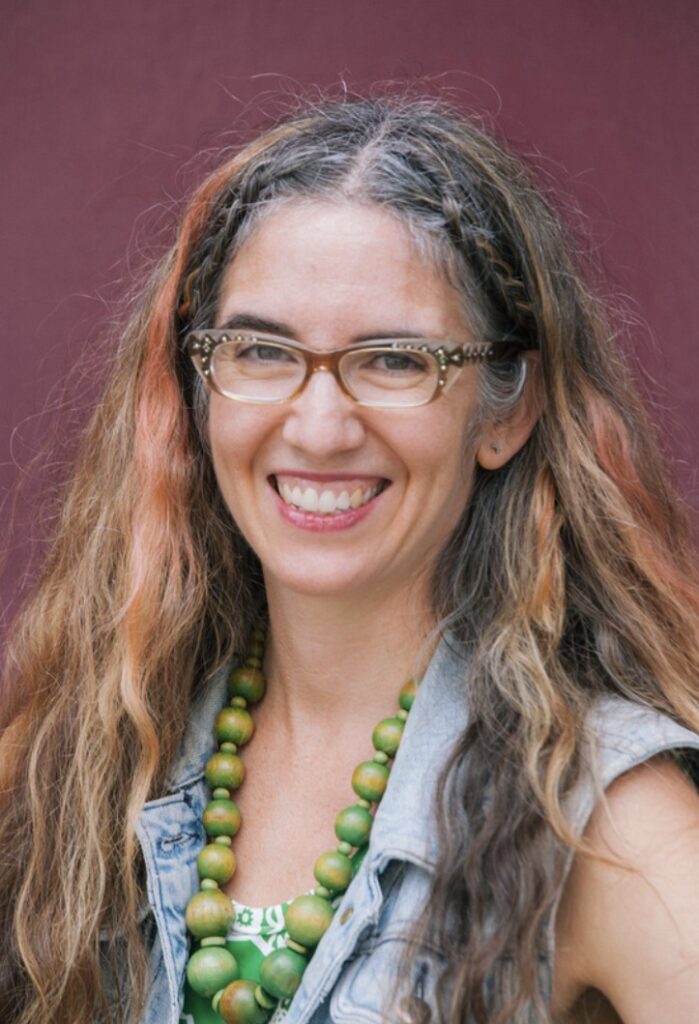Engagement Lab Partnership Looks to Change the Story of Gun Violence

When you read or watch a news story about an act of gun violence, what do you learn? You’ll certainly find out where and when it happened, and possibly who wielded the gun. You may read about the person shot, who they were, where they were from. You’ll probably get statistics about gun violence in that neighborhood over time.
You’re less likely to understand the social complexity of the problem– all the ways that the act of gun violence ripples through a community, what circumstances and pressures lead someone to pick up a gun, how the community comes together to grieve and heal.
“The stories that get told about homicide are most often sensational, and most often creating an economy of fear and objectification,” said Professor Eric Gordon, director of the Engagement Lab at Emerson College, one of three community partners collaborating on Transforming Narratives of Gun Violence, an initiative that seeks to eliminate firearm assaults and murders in Boston by changing the way we talk about and understand the problem.

Or, as Dr. Peter Masiakos, director of Massachusetts General Hospital (MGH) Pediatric Trauma Services and co-director of MGH’s Center for Gun Violence Prevention put it in a statement, “Health care providers talk about gun violence being our lane, but we cannot ignore the people in the middle of the highway being hit by trucks day after day. Telling these stories in authentic and compelling ways will have a profound impact on the way our society embraces and addresses this public health epidemic.”
The three-year collaboration, with the Center for Gun Violence Prevention and the Louis D. Brown Peace Institute, a Boston nonprofit that provides services and support to families who have lost a loved one to gun violence, launches Thursday, December 2, with a virtual event. Representatives from the three partner institutions, along with Congresswoman Ayanna Pressley and Boston City Councilor Andrea Campbell, will speak.
Watch: Transforming Narratives of Gun Violence Launch Event
Transforming Narratives utilizes partnered studios at Emerson, multidisciplinary courses in which students work intensely with community members, organizations, and sometimes, other departments within Emerson towards some end – in this case, shifting the conversation around gun violence.
Gordon said over the course of the initiative, students, faculty, and their partners will investigate the roles of local news and reporting, media art, participatory documentary, storytelling, performing arts, and social media influences on changing those very narrow narratives around gun violence.
“My goal is to have every department on this campus have a stake in this,” Gordon said
Theatre of the Engaged
One of the first partnered studios to tackle the issue is Performing Solutions: A Dramatic Approach to Gun Violence Prevention, led by Performing Arts Assistant Professor Dana Edell and being offered in Spring 2022.

Each student will produce two shows: a solo performance about some aspect of gun violence, and a larger, devised piece created by the whole class that may integrate some of the solo shows and will likely involve engaging with the audience around themes in the play and how gun violence may impact their own lives.
“I’m excited about my students’ innovation and creativity [with] what they come up with,” Edell said.
But before there can be any performances, there must be research and dialogue with the communities most affected by gun violence.
Prior to designing her course, Edell met with Gordon, Masiakos, of the MGH Center for Gun Violence Prevention, and Chaplain Clementina Chéry, president/CEO of the Louis D. Brown Peace Institute, who told Edell about her experience losing her teenage son to gun violence and how alone she felt at the hospital.
“She creates these really amazing resources for families who leave the hospital after losing a loved one to violence,” Edell said. Their stories were “just really powerful.”
Students in her course will start the semester researching gun violence and the current barriers to changing the narrative, things like media preoccupation with gangs and the role the National Rifle Association plays in American politics. They’ll also meet and interview Changing Narratives collaborators and families affected by gun violence. They’ll spend time one-on-one with a person and learn their story.
Edell hopes that the solo performances can be performed in a “meaningful way,” possibly for doctors and nurses at MGH who treat the physical wounds of gun violence but aren’t as accustomed to treating the emotional wounds, or at a Peace Institute event somewhere in Boston.
As an admirer of Augusto Boal’s Theatre of the Oppressed, a movement begun in 1970s Brazil that uses theatre to advance social justice, Edell envisions her class’ final show as an event that draws its audiences into a larger conversation around narratives and tactics.
Theatre is unique as an art form, Edell said, because it’s so deeply connected to the idea of audience and performer being in one room.
“We are all in the space together, so we have the opportunity to engage with the audience directly as part of the performance. That’s what I hope to do with this project,” she said.
Gordon said that while no one project has the power to change the narrative, the effects can be cumulative.
“It’s about a generative process where over time, we can source the kinds of stories that need to be told through a collaborative effort,” he said.
And because the project is local, the Engagement Lab and its partners will be able to track those changes over time and, they hope, measure impact.
“I’m excited about that, and I think we can get very serious about narrative change,” Gordon said.
Chéry, president/CEO of the Louis D. Brown Peace Institute, said “When we think about sustainable change and shifting the narrative it is done through partnerships like this, where intervention and education is taking place at multiple levels.”
Categories